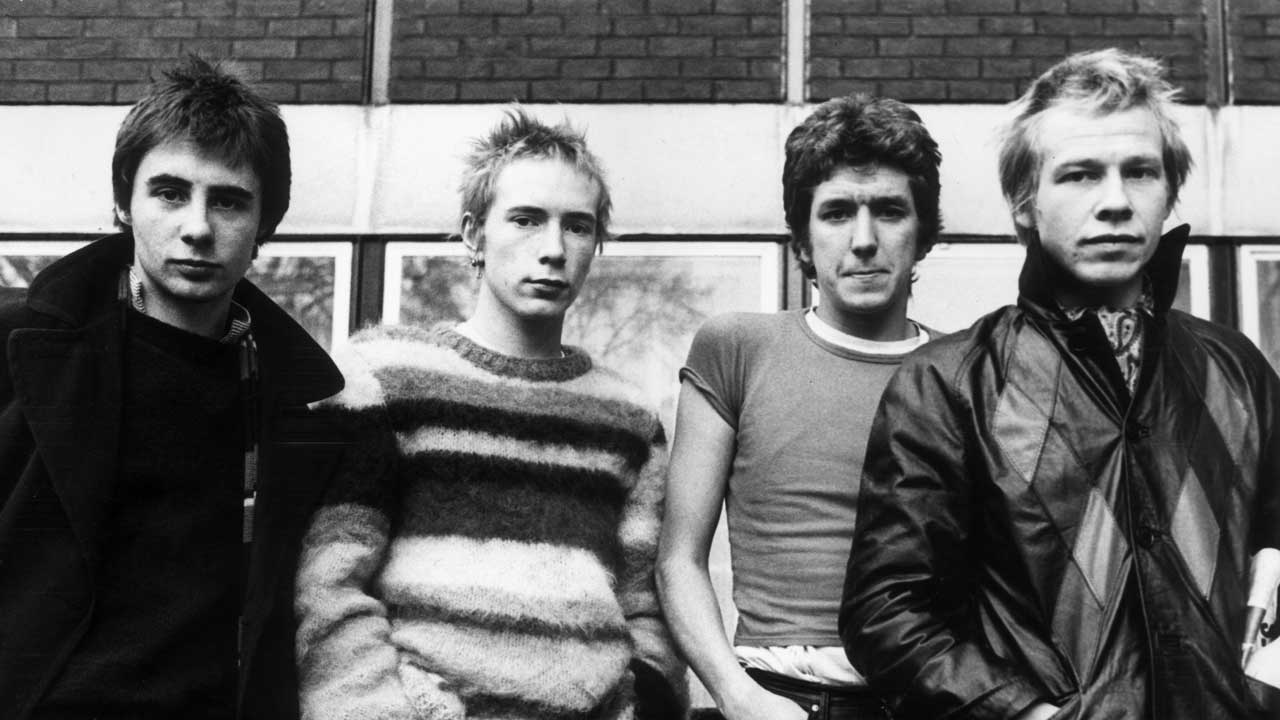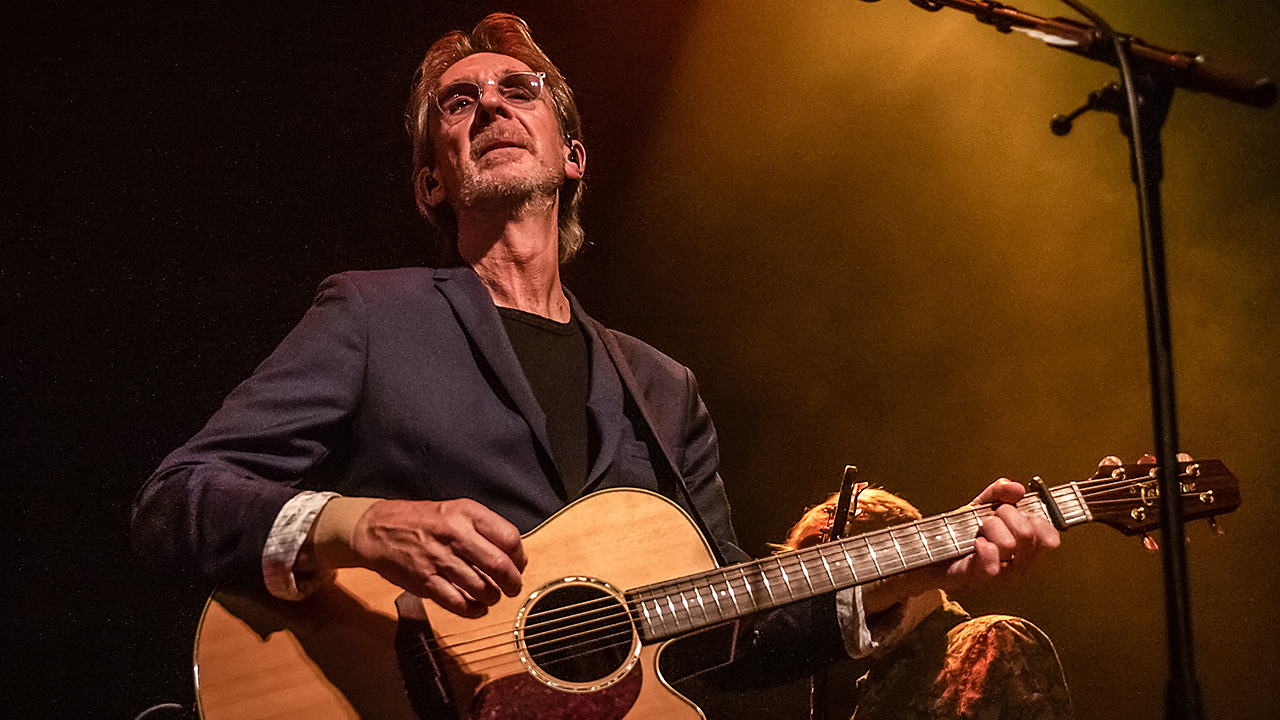A piano to a knife fight: the unlikely journey of the Sex Pistols' God Save The Queen
Upon its release in 1977, God Save The Queen become punk’s most provocative statement, one that led to the band being violently attacked in the street

Select the newsletters you’d like to receive. Then, add your email to sign up.
You are now subscribed
Your newsletter sign-up was successful
Want to add more newsletters?

Every Friday
Louder
Louder’s weekly newsletter is jam-packed with the team’s personal highlights from the last seven days, including features, breaking news, reviews and tons of juicy exclusives from the world of alternative music.

Every Friday
Classic Rock
The Classic Rock newsletter is an essential read for the discerning rock fan. Every week we bring you the news, reviews and the very best features and interviews from our extensive archive. Written by rock fans for rock fans.

Every Friday
Metal Hammer
For the last four decades Metal Hammer has been the world’s greatest metal magazine. Created by metalheads for metalheads, ‘Hammer takes you behind the scenes, closer to the action, and nearer to the bands that you love the most.

Every Friday
Prog
The Prog newsletter brings you the very best of Prog Magazine and our website, every Friday. We'll deliver you the very latest news from the Prog universe, informative features and archive material from Prog’s impressive vault.
The seeds of God Save The Queen were sown at the Lansdowne Studios in west London, during the Sex Pistols’ disastrous early attempts to record Anarchy In The UK. It was October 1976 – several months before the Silver Jubilee, the boat trip and the national furore for which the song has become infamous. Anarchy In The UK was to be the Pistols’ first single.
Having signed to EMI for £40,000, singer Johnny Rotten, guitarist Steve Jones, bassist Glen Matlock and drummer Paul Cook entered the studio with Dave Goodman, the band’s live sound engineer, who was initially entrusted with production duties. The process was long and arduous – with Jones claiming “we didn’t know what we were doing in there” – but despite the sessions being scrapped, the band’s time hadn’t been entirely wasted.
“There was a piano that we found at the Lansdowne Studios,” Matlock recalls. “Not being a pianist, I was fiddling around with it, driving everybody mad. But I got this riff going, and started working it out on the guitar. I had a few things in the back of my mind – the Spiders From Mars, The Move. I was trying to write a rock’n’roll tune.”
While Matlock and Jones tweaked the song’s structure, Rotten toyed with the words; a process that found the singer crouched in a corner, scribbling lyrics that his bandmates weren’t allowed to see. Rotten now paints the writing of God Save The Queen as a laughably simple process. “I just woke up, went down, had a cup of tea and wrote it. And there it was. I thought, ‘Oh, that’s a laugh. I’ll try and sneak that in.’
“The whole thing was written in one go,” he claims in his autobiography. “I had the lyrics ready. I wrote them a while back but never used them. Steve fell into it very quickly. Paul aided and abetted it very quickly with the drums.”
An early version of God Save The Queen featured on the band’s Anarchy tour of December 1976. “It was always called No Future when we played it on the tour,” Matlock explains. “After I left they changed the title, as it coincided with the Queen’s Jubilee. None of the words were changed.”
The song also surfaced during sessions at Manchester Square Studios the same month, but – contrary to Rotten’s claims – it was still a work in progress. The official version that appears on Never Mind The Bollocks was laid down at Wessex Studios in early 1977 by a production team of Chris Thomas and Bill Price.
Sign up below to get the latest from Classic Rock, plus exclusive special offers, direct to your inbox!
The Pistols, by this point, were a very different proposition. In March, Matlock had been squeezed out to make room for Sid Vicious, while following the band’s appearance on Bill Grundy’s Today programme, their contract with EMI had been terminated and their behaviour was becoming headline news.
Recording found Rotten’s vocals being spat into a cheap microphone, while Price and Thomas positioned ambience mics to lend a suitable clatter to Cook’s drums and combat the sound deadening from the room’s carpets. Vicious’s musical incompetence, meanwhile, meant the bassline was laid down by Jones.
“To start with, I think we tried to use some of Sid’s bass,” explains engineer Bill Price, “but in the end we gave up even doing that.”
God Save The Queen was released by Virgin on May 27, 1977. Both the single’s timing and its promotion were clearly the idea of manager Malcolm McLaren.
“Malcolm realised it would coincide with the Jubilee,” Matlock remembers, “and even when they did that boat trip thing, John confided in me that he thought they were just doing a trip; he didn’t realise it was because of the Jubilee. Bands don’t.”
For his part, Rotten has always claimed the lyrics were misunderstood. “These were fun songs done in a laugh,” he protests. “If you think about it, God Save The Queen – it’s kinda camp in a way. You certainly don’t think it’s gonna be taken as a declaration of civil war.”
Matlock agrees: “What everybody misses about the song is the line ‘no future’ – it means you’ve got to do something about it for yourself. I think it’s a positive song. I think it’s a really positive song.”
God Save The Queen ultimately reached No.2 in the charts, despite being banned from radio and TV, and McLaren’s claims that it was “outselling old Rod Stewart”. Amid theories of government tampering, the Pistols found themselves in increasing physical danger as a result of the song’s supposed anti-monarchist lyric.
“It wasn’t very nice,” recalls drummer Paul Cook. “Everyone started getting paranoid. We had to be careful when we went out.” Cook would later be attacked outside Shepherd’s Bush Tube station by six men armed with knives and an iron bar. Rotten, Price and Thomas were cornered outside a pub in Highbury and attacked with razors. All four survived, but it was final proof of the song’s ability to both anger and unite.
Intentionally or not, the Pistols had made their defining social statement. “The song was just telling it like it is,” concludes Matlock. “We never set out to shock; we just wanted to talk about things as we saw them. People found that shocking – but that wasn’t going to stop us.”
Sex Pistols: The Original Recordings is released May 27 via UMG.
Henry Yates has been a freelance journalist since 2002 and written about music for titles including The Guardian, The Telegraph, NME, Classic Rock, Guitarist, Total Guitar and Metal Hammer. He is the author of Walter Trout's official biography, Rescued From Reality, a music pundit on Times Radio and BBC TV, and an interviewer who has spoken to Brian May, Jimmy Page, Ozzy Osbourne, Ronnie Wood, Dave Grohl, Marilyn Manson, Kiefer Sutherland and many more.

